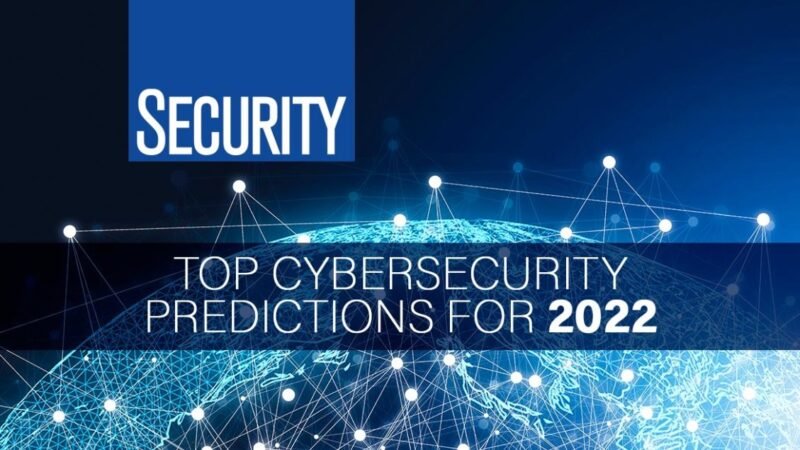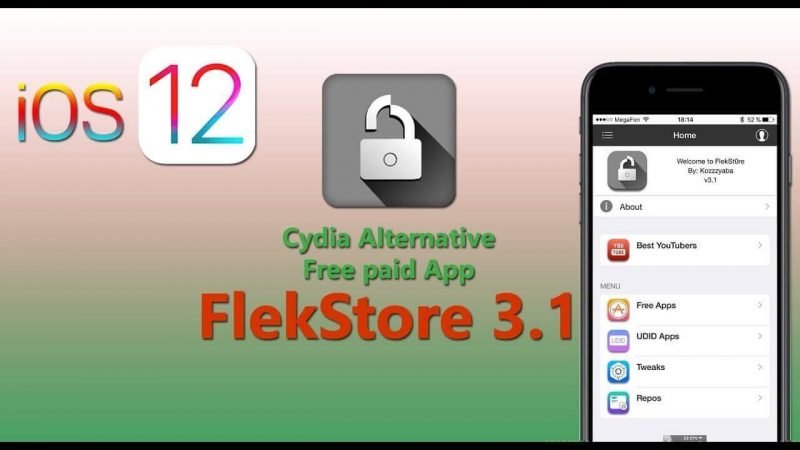The Best VPNs for Freelancers and Freelancers in 2021

With fast internet connections available in places around the world and jobs increasingly online, more and more people are taking telecommuting. Teleworking in the office is becoming the norm in a whole range of industries and jobs. On top of this, in the new gig economy, many people work as freelancers, deal with a mix of clients, and manage their own schedules and workloads.
Both remote work and freelance work give workers the freedom to work in new ways, often including working from a new location. When you can Skype in all your meetings and email all your work, why not work from a different location? It could be traveling to a new country or just working hard while visiting family friends in your hometown.
Regardless, both freelancers and remote workers need a few tools in their digital arsenal to deal with the problems that come up when working online. Today we’re going to talk about why remote workers and freelancers might want a VPN, and then we’ll recommend the best VPNs for freelancers and remote workers.
FINAL SALE: 2-year offer with 68% DISCOUNT
Get the best VPN
30 day money back guarantee
Why is it difficult to access content from abroad?
This is a common problem when you work remotely – you arrive in a new country, find a cafe with an internet connection, set up at work, and then disaster strikes – you can’t access important files or websites. The problem is that some sites use geolocation to track where users are visiting from and then limit visitor access to content based on their location.
For example, a new font may be available only in your local area and not accessible from abroad. Or there may be a language issue, such as when you visit a familiar site, but the content is presented in the local language you are in, not the language you speak. In both cases, you are viewing a different version of the site than you would usually see at home because you are in a different location. This is the same problem you will encounter if you try to use a streaming service like Hulu or Netflix; Content that you can view at home may not be available when you are abroad.
This process is called regional blocking, and it means that websites will only allow you to access certain content when you visit them from a particular geographic location. This can cause a lot of problems for remote workers traveling or accessing their work materials from a new location. Fortunately, it is possible to get around these region locks and access your files and content as usual using a VPN.
Using a VPN to get around region locks
So how does this region lock process work? Typically, when you use an unencrypted internet connection, your internet provider will assign you an IP address and this IP address can be traced to a particular location. This is because IP address ranges are assigned to each country, so when you visit any website, that site can read your IP and see where you are visiting it from. When you travel abroad and try to access a region-locked website, the site sees that you are in, say, Italy instead of the US, and restricts what you can view.
But a VPN can help with this by giving you a new IP address. A VPN works by encrypting all the data that leaves your device and travels over the Internet. You choose a server to connect to in the country of your choice, and your encrypted data is sent to that server to be decrypted and sent to its original destination. This means that because the data is not encrypted on the server, it is assigned an IP corresponding to the location of the server and not the location of your device. So even if you are in Italy, you can connect to a server in the US, when you visit websites, they will show you the US version. This is how you can get around region locks from any country and to any country.
A VPN service will give you access to a network of servers around the world, so you can choose any server to connect and browse as if you were in there. This means that remote or self-employed workers can be abroad and connect to a server in their home country, then use the internet to access whatever site they need as if they were at home. They can even watch your streaming services like Netflix or Hulu as if they were at home too.
Other reasons to use a VPN
A VPN can bring more benefits to remote workers than the convenience of getting around regional locks. There are also important security and privacy benefits to consider:
Protect yourself from hackers on public wifi . A popular way to work is to find a public Wi-Fi network in a coffee shop or airport, for example, and use this connection to work. However, it can be dangerous to connect to an unprotected public network. When you send data over a network, other users can intercept this data. This means that hackers on public Wi-Fi networks could steal your personal information and use it for identity theft, or they could spy on your private work documents. You can protect yourself from this risk by using a VPN as long as you connect to a public network. VPN encryption means that your data is securely packaged and kept so that no one else on the network can read or intercept it.
Preserve your privacy . When you use an unsecured Internet connection, it is easy for the Internet provider to track exactly which sites you have visited and even see the data that you have sent over the Internet. In addition to being an invasion of your privacy, if your work is sensitive, this can be a big problem. To prevent your Internet provider, government, or any other third party from being able to track your Internet use, use a VPN to encrypt your data, which will prevent others from intercepting you.
Download files safely . If you are going to download files or visit websites that are not totally legal, you need to be careful, especially when traveling. Make sure you don’t have a problem downloading or streaming something you shouldn’t be using over a VPN to encrypt your traffic and hide your download activities.
How should remote workers choose a VPN?
With all of these benefits, it’s clear that remote workers and freelancers will benefit from a VPN. In addition to helping you keep your professional work safe, a VPN will also improve your personal privacy. But how should you choose a VPN and what factors are the most important in that choice? Here, we’ll recommend our top VPNs for remote workers and freelancers, based on the factors we consider most important:
Strong encryption . For a VPN to keep you safe, you need the best encryption that is virtually impossible to crack. We recommend industry standard 256-bit encryption, as appropriate.
Quick connections . A bad virtual private network (VPN) can slow down your internet connection, make work difficult, and be an unnecessary hassle. We identify VPNs that are so fast that you won’t even realize they are there.
A no-log policy . For added peace of mind when it comes to privacy, we look for VPN providers that don’t keep logs of their users’ data so you can be sure their activities won’t be logged.
Support for different operating systems . You want to be able to protect all your devices with a single VPN subscription, so we look for providers with software that supports multiple different platforms.
No bandwidth limitations or traffic restrictions . A lot of free VPNs have bandwidth limits or limitations on the types of traffic allowed on the network, which is not good when you want to work freely. We identify reputable paid VPN services that have no bandwidth caps or traffic restrictions so you can browse freely.
When we look at all of these factors, here are the VPNs we recommend:
1. ExpressVPN
One of the most popular VPNs among power users and internet professionals is ExpressVPN . Thanks to its super fast connections and exceptional reliability around the world, this service is ideal for frequent travelers. With a server network of over 1000 servers in 145 different locations in 94 countries, you will have no problem finding a server, and you will also benefit from excellent security with strong 256-bit encryption and a no-logging policy to protect. your privacy. The software has useful advanced features like speed test and DNS leak and is available for Windows, Mac OS, Android, iOS, Linux, and more.
Check out our full ExpressVPN review for more information.
Pros
- SPECIAL OFFER: 3 months free (49% discount – link below)
- Lightning fast servers (minimal speed loss)
- AES-256 encryption at the government level
- It does not keep records of personal data.
- Live chat 24/7.
Cons
- Advanced user configuration options.
READER OFFER: Get 3 months free on ExpressVPN’s annual plan and save 49%
2. NordVPN
For those who are primarily concerned with security and want to be absolutely sure that no one can access their data, then NordVPN Is the best option. This service has more than 1000 servers in more than 60 different countries to easily access content from other parts of the world. But the best feature is the exceptional security. In addition to the strong 256-bit encryption and no logging policy you would expect, there is also a special double encryption feature where your data is encrypted not once, but twice. The data is passed through an additional layer of encryption for the best possible security. The software has a map interface that makes it ideal for travelers, and is available for Windows, Mac OS, Linux, iOS, Chrome OS, Android, iOS, and Windows Phone, as well as browser extensions for Firefox and Chrome.
Learn more in our full NordVPN review for 2019.
Pros
- Desbloquea American Netflix
- Different aervers IP addresses
- Torrenting / P2P explicitly allowed
- “Double” data protection
- Great customer service via chat.
Cons
- Automatic server selection can be unreliable
- Sometimes it takes time to process refunds (but they always do).
Get a whopping 66% discount on NordVPN’s two-year special, for a total cost of just $ 3.99 per month, with a 30-day money-back guarantee.
3. IPVanish
When you want a VPN that is fast on top of everything else, you need IPVanish. With fast connection speeds and a network of 950 servers in 60 different countries, you can always find a server in the country you need and know that it will be super fast. The service offers good security with strong 256-bit encryption and a no-logging policy, so you can browse with peace of mind. The software has useful functions such as a kill switch, automatic reconnection, leak protection for IPv6 and DNS, periodic IP address change and manually configurable DNS, it is available for Windows, Mac OS, Android, Linux, Windows Phone and iOS.
We have an exclusive agreement on IPVanish services for Addictive Tips readers: a 60% discount on the annual plan, which brings the price down to just $ 4.87 per month. There’s also a seven-day money-back guarantee so you can shop with confidence.
4 .VyprVPN
Another good option for travelers, especially those who spend time in China, is VyprVPN . The infamous Great Firewall of China severely restricts what sites and content are accessible from China, and the Chinese government tries to end VPN use by adding VPN protection to its networks. This means that many VPNs don’t work in China, but VyprVPN does.
This is because, in addition to good security with 256-bit encryption and a no-logging policy, the service has a special feature called the Chameleon protocol. This protocol encrypts not only your data, but also your metadata (which includes information about the origin and destination of data packets). VPN detection tried to match the data source with the source indicated in the metadata, and rejects those that do not match, so most VPNs do not work on such networks. But since the Chameleon protocol also encrypts the metadata, a mismatch is not found and thus VyprVPN works.
This makes it the best option for remote workers who will be traveling through China. The service has a network of more than 700 servers in 70 different countries and the software is available for Windows, Mac, Android and iOS.
Take advantage of a 50% discount on your first month with VyprVPN , plus a three-day free trial .
5. PureVPN
Finally, one option includes not only a VPN but also an all-in-one security solution: PureVPN . The VPN part of the service has excellent security with strong 256-bit encryption and a no-logging policy. The server network includes more than 750 servers in 140 different countries, and the connection speeds are good.
But besides the VPN, there are also other features to keep you safe, such as antivirus and antimalware protection, an antispam filter for your email inbox, application filtering, DDoS protection, a kill switch, the option of a dedicated IP. and a NAT firewall. The software can be installed on Windows, Mac OS, Android, iOS, and Android TV devices, in addition to the browser extensions available for the Chrome and Firefox browsers.
To save money on PureVPN, you can take advantage of a 73% discount on the two-year plan, for a total cost of $ 2.95 per month, with a seven-day money-back guarantee.
conclusion
Freelancers and remote workers benefit from flexible working hours, which means they can travel and work in many locations outside of the traditional office. However, working remotely also requires consideration of some security issues, from the possibility of hackers stealing your data while using public Wi-Fi in a coffee shop to the difficulty of accessing content that is restricted in the country in the one that is currently. A VPN can help improve both of these issues and improve your overall online security and privacy at the same time.
If you have experience with remote work, what security measures did you take? Did you use a VPN or was there another method you want to share? Let us know in the comments below.






